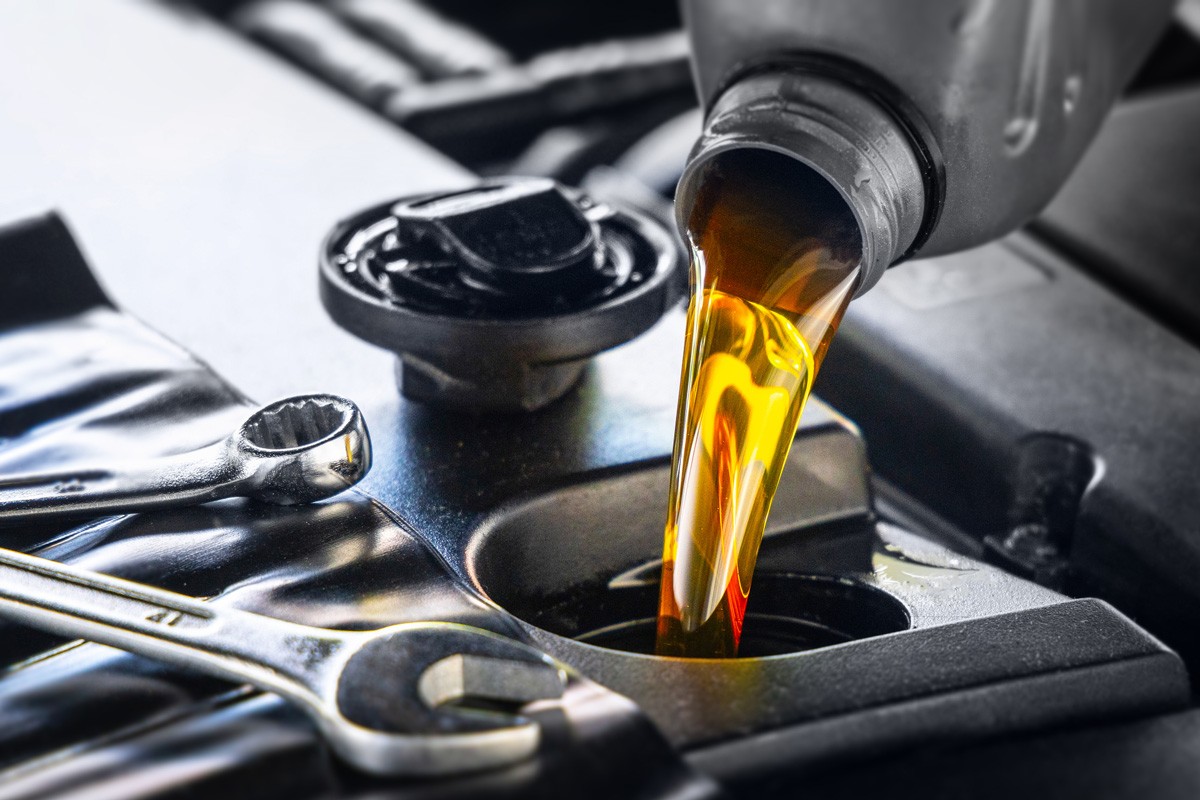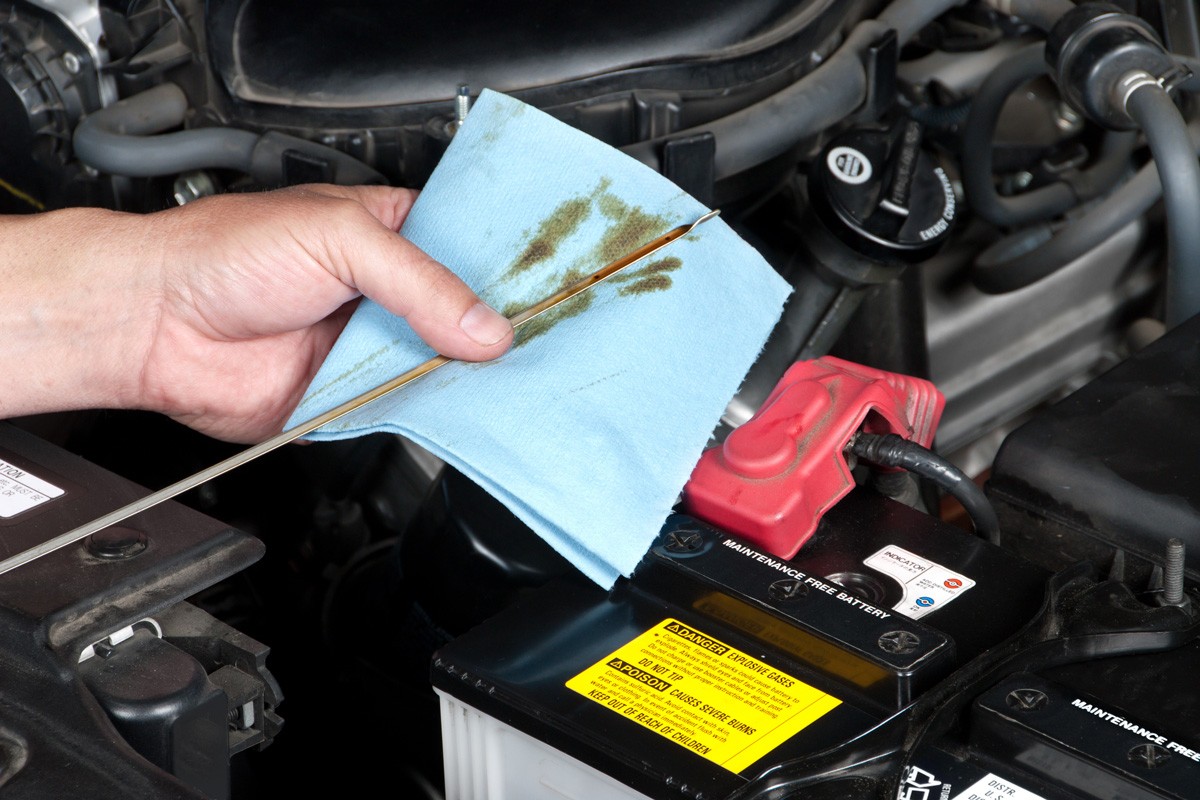If you are properly maintaining your vehicle, you have had the oil changed in it many times. You might be wondering if it's okay to drive your vehicle immediately after this maintenance item has been performed. We can give you a definite answer to that question. We conducted in-depth research on engines so that you'll know for sure when it will be safe to drive your car.
When getting your oil changed at a dealership or mechanic, it will be safe to drive your car immediately after the oil change. When changing it yourself, it's recommended that you wait 10 minutes.
Now that we know that you can immediately drive your vehicle after an oil change, we'll take a close look at why oil changes are so important. You might also be curious if there are any symptoms of low oil in a car or if the engine will shut off if it runs out of oil. For the answers to these questions and more, read ahead in this post to see what we've discovered in our research.

Why There Is A Difference In Waiting Time When You Change The Oil Yourself
When you have a mechanic change your oil, they will ensure that all of the old oil is drained and that the crankcase has been filled with the proper amount. So when they hand you back your keys, you can immediately drive away. No waiting is needed.
But let's suppose you change the oil yourself. After carefully draining out the old oil, you will replace the drain plug and fill the crankcase with your preferred brand of oil. With the engine now off, you'll want to wait about 10 minutes.
After 10 minutes, the oil will have settled and will be the proper consistency for you to check. You will check the level with the oil dipstick and a rag. If the oil level reads "full," you're good to go. There's a chance it won't be, and you'll need to add a bit more.
This 10-minute wait will ensure that you don't underfill your crankcase. It's an often overlooked step, but it's still an important one!
Why Oil Changes Are Important
The motor oil is the lifeblood of your vehicle. Not only does it need to be changed, but you need to make sure that it always has the proper amount.
Oil As A Lubricant
The engine of your vehicle has a lot of moving parts. Some of these parts are tightly packed together and in motion. To keep them from getting damaged, a lubricant is needed. Oil continuously moves through a running engine. The oil coats and lubricates the moving parts so that there is no grinding.
Oil has a shelf life inside the engine. You must change it often so these parts can stay lubricated.
Oil As A Coolant
The moving parts of the engine create a lot of friction. Friction will produce a lot of heat. Motor oil will act as a cooling agent on these moving parts.
The oil from the crankcase cools the engine just like fluid from the radiator. But the oil must be fresh. If you have old oil, it won't work as well to keep things cool. And if you are out of oil, you're out of luck!
Oil As A Cleaner
The oil's viscosity does more than just lubricate. The oil also acts as a cleaning agent. The oil will help remove gunk and debris from the engine before it accumulates. If you don't regularly change the oil, it will lose its viscosity. This will hinder its ability to clean the engine.
How Long Does It Take For Oil To Get Into The Engine?
The oil from the crankcase will enter the engine very quickly. In most circumstances, you can expect the engine oil to fully circulate throughout the engine in less than 30 seconds.
The major exception to this concerns outside temperatures. In extreme cold, the oil will take longer to heat up. The colder the oil, the thicker it will be.
In temperatures that are well below freezing, it's smart to allow your car several minutes to fully warm up. This will not only get your engine and oil to the right temperature but it will make your cabin a lot cozier before you begin your drive.

Why Does My Car Shake After An Oil Change?
Your vehicle might shake after an oil change. While this is not common, it does happen. And if it does, it warrants some serious attention.
Usually, this means that not all of the old oil was drained before the new oil was added. Always be sure the old oil is completely out before you replace the oil plug and add the new oil.
A disconnected sensor can cause your car to shake. If you add the wrong oil type to the engine, this can also cause the problem.
What Are The Symptoms Of Low Oil In A Car?
Normally, if you change your oil as scheduled, you won't run low. But leaks can happen. And if you have an older vehicle, it can sometimes begin to burn oil without you knowing it.
There are signs you can look for easily. Checking the dipstick is the one we recommend the most. If your vehicle is older, we recommend checking it every two weeks. Check your oil more frequently if you know the engine is burning it.
Some vehicles will have an oil light that will illuminate if the oil is low. This oil light can mean a lot of other things, too, like low oil pressure.
You might notice a knocking sound if the oil is low. This happens when the engine is dangerously low on oil. You should have any unusual sounds inspected as soon as possible.

How Often Should I Change The Oil In My Car?
When you change the oil of your vehicle will depend on the vehicle you are driving and the type of oil. You can find this information in your owner's manual.
When all vehicles used standard motor oil, the common answer to this question was to change the oil and filter every 3,000 miles or every three months. But newer vehicles have different standards. And not all vehicles use standard motor oil today.
If you are using synthetic oil, it will need to be changed every 5,000 to 10,000 miles. This is based on the make of the vehicle. Engines that use standard motor oil will need to have it changed every 3,000 to 4,000 miles depending on the make.

How Long Can A Car Run Without Oil?
Can an engine run without any oil in it? For information purposes only, we researched this question. Though an engine will run for some time dry of oil, doing so will destroy it.
An internal combustion engine can run up to 30 minutes without oil. We know from the information we posted earlier that this would be a terrible idea, however.
The damage to your engine can begin in less than 5 minutes. The engine heats up quickly. Without the oil to lubricate the engine, the moving parts will begin to suffer damage in that amount of time.

Will My Engine Shut Off If There Is No Oil?
You might be wondering if your vehicle will just turn off if there is no oil. Unfortunately, no mechanism will sense this and automatically shut off your engine to avoid the damage.
If you run your engine long enough without oil, the engine will eventually turn off. But when this happens, it will almost always mean that it's time to replace your engine.
The pistons and cylinders will warp, the head gasket will be destroyed, and the numerous other parts that need to be cooled and lubricated will be damaged enough to make it impossible for the engine to continue running.
Always keep the oil in your engine to its required minimum amount. Change the oil and the filter regularly, and never operate a vehicle that has low or no oil.
Final Thoughts

Oil is the lifeblood of your vehicle. You should have this fluid changed regularly to avoid mechanical failure. If you operate your vehicle with low oil or no oil, you will quickly damage it beyond repair. Drive safe!
We hope this post on oil changes answered all of your questions. For more helpful information, we suggest reading the following automotive posts:
Do Electric Cars Need Oil Changes or Other Routine Maintenance?
How Long Do Spare Tires Last? [And How Far Can You Drive On Them]
